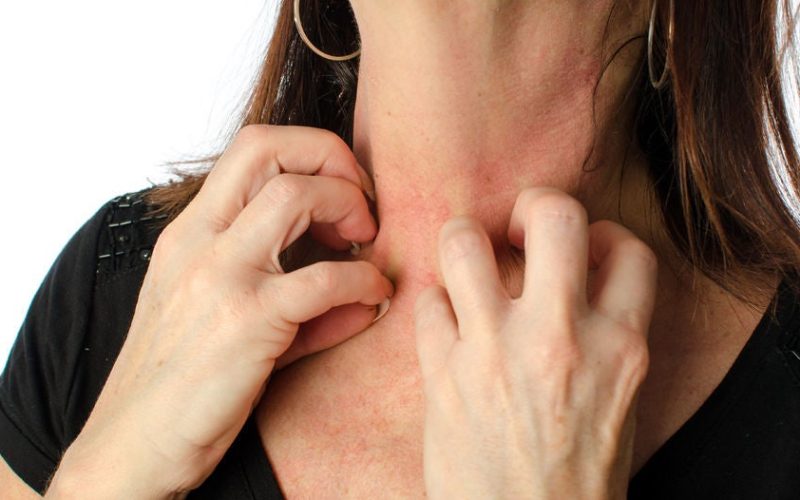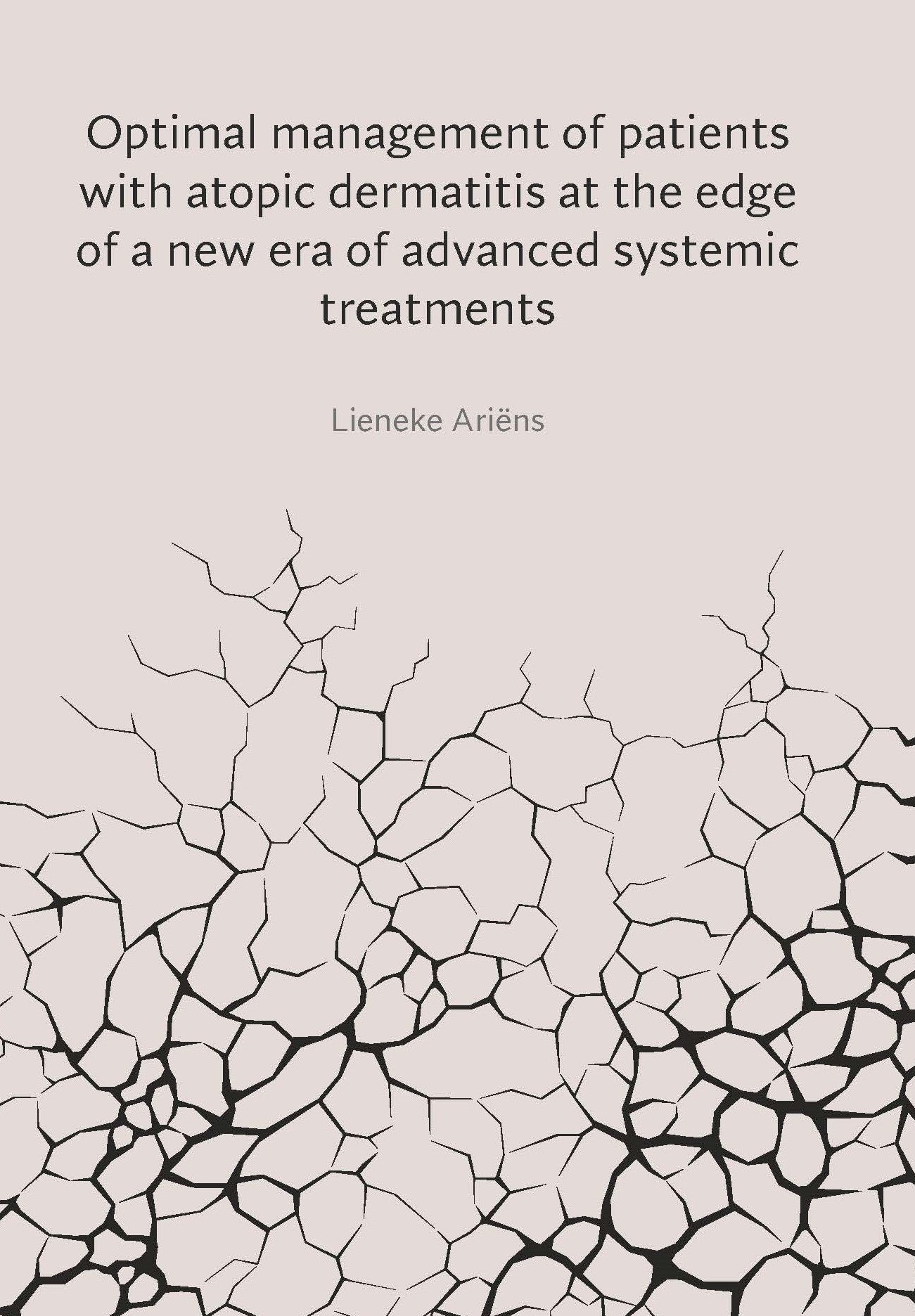Moderate-to-severe atopic dermatitis results in considerable disease burden with average costs estimated at € 15 thousand per year. Treatment with the monoclonal antibody dupilumab resulted in a rapid and sustained reduction of work absenteeism and associated costs. In difficult-to-treat patients dupilumab significantly reduced disease severity, improved quality of life but also increased the risk of developing conjunctivitis. These were the main findings of the PhD work by Lieneke Ariëns (UMC Utrecht) who defended her thesis on September 21, 2023.
Atopic dermatitis (AD) or eczema is the most common chronic inflammatory skin disease worldwide and is associated with many comorbid conditions, high rates of anxiety and depression, patient-reported symptoms, lower health-related quality of life (HrQoL) which causes a major burden in patients with moderate-to-severe AD. In addition, AD also has a substantial socioeconomic impact derived from direct costs of treatment and indirect costs caused by missed work and school and reduced work productivity. With new and more-targeted therapeutics being approved for the treatment of moderate-to-severe AD, more information on the economic burden and impact on HrQoL in AD patients indicated for these treatments is needed. It is expected that these new treatments will increase drug acquisition costs, which may, in part, be compensated by their impact on the HrQoL and costs of productivity losses.
Dupilumab, a fully human monoclonal antibody targeting the IL-4 receptor, thereby blocking the IL-4 and IL-13 pathway, is the first antibody-based treatment that has been approved for moderate-to-severe AD. In this PhD thesis, Lieneke Ariëns (Department of Dermatology and Allergology, UMC Utrecht) and colleagues aimed to study the economic burden and impact on the quality of life in patients with moderate-to-severe AD indicated for systemic treatment who are also candidates for newly introduced systemic treatments for AD. Secondly, she studied the effectiveness and safety, and impact on the economic burden of dupilumab treatment in patients with moderate-to-severe AD treated in a daily practice setting, by using real-life data derived from the Dutch BioDay registry.
The results from real-life studies by Lieneke Ariëns showed that moderate-to-severe AD results in considerable disease burden with costs estimated at € 15 thousand per year. Treatment with dupilumab resulted in a rapid and sustained reduction of work absenteeism and associated costs. In addition, in difficult-to-treat patients dupilumab treatment significantly reduced disease severity and improved quality of life. Although generally well tolerated, treatment with dupilumab increased the risk of developing conjunctivitis.
Atopic dermatitis is one of the most common chronic inflammatory skin diseases worldwide, with a prevalence of up to 15 percent in children and up to 10 percent in adults. AD is characterized by itchy, red, swollen and ‘cracked’ skin, resulting in persistent pruritus, pain, sleep disturbances and symptoms of anxiety and depression. This may lead to a profound impairment of quality of life. According to the RIVM, nearly 400,000 people in the Netherlands have AD with a health care cost of €150 million per year.
Lieneke Ariëns (1989, Nieuwegein) defended her PhD thesis on September 21, 2023 at Utrecht University. The title of his thesis was “Optimal management of patients with atopic dermatitis at the edge of a new era of advanced systemic treatments.” Supervisor was prof. dr. Marjolein de Bruin-Weller (Department of Dermatology and Allergology, UMC Utrecht). Co-supervisors were dr. Jorien van der Schaft (Elizabeth-TweeSteden Ziekenhuis, Tilburg) and dr. Judith Thijs (Department of Dermatology and Allergology, UMC Utrecht). In 2019, Lieneke started her residency in dermatology at UMC Utrecht.

